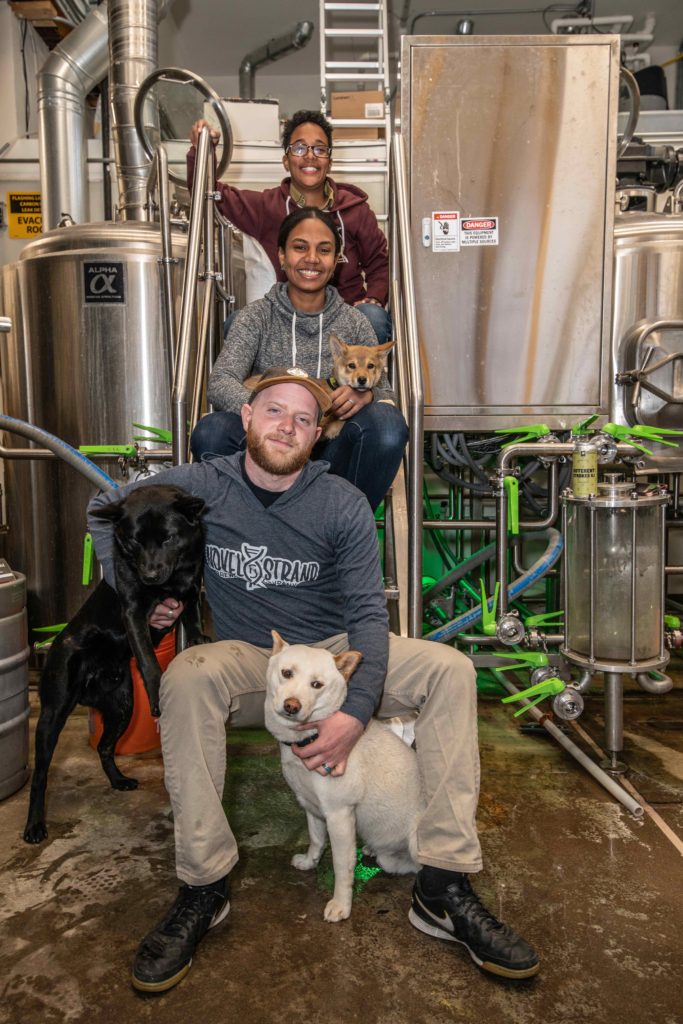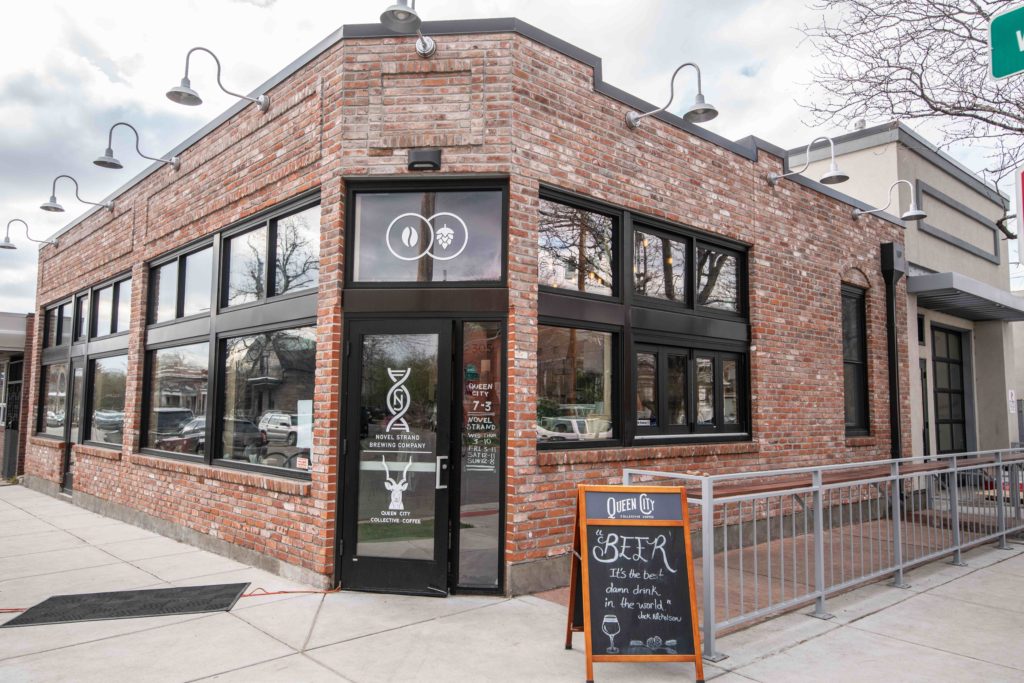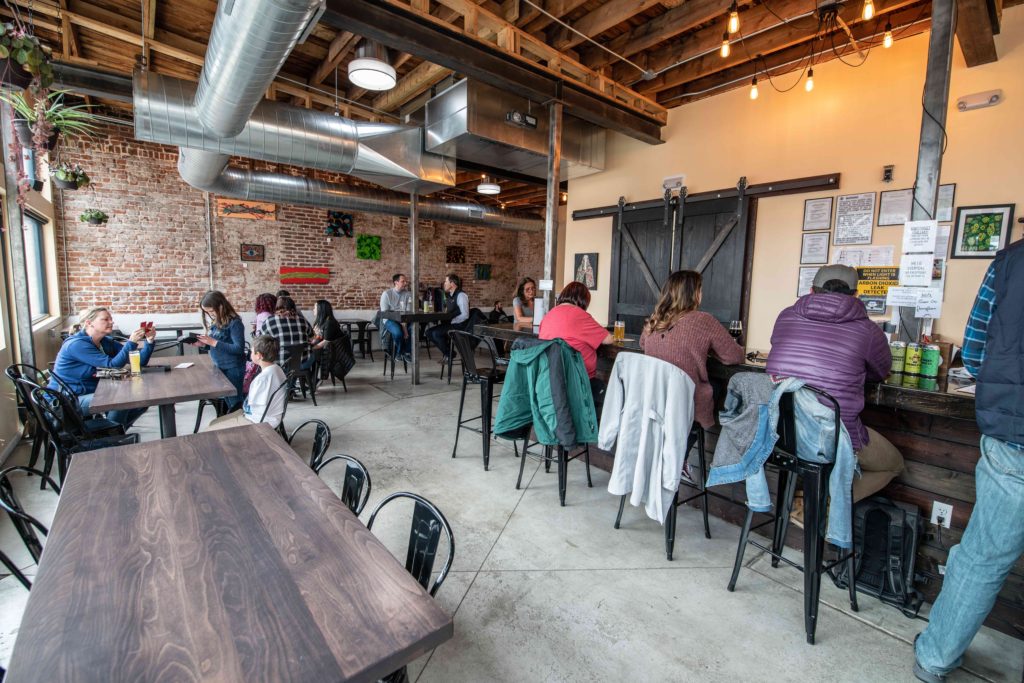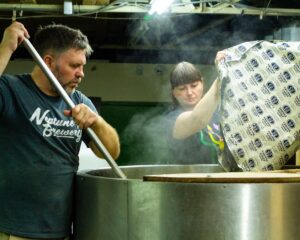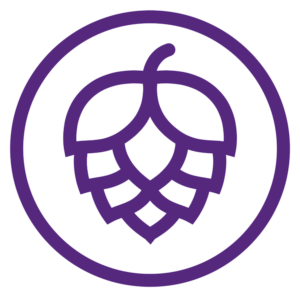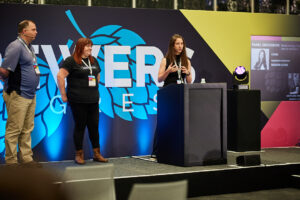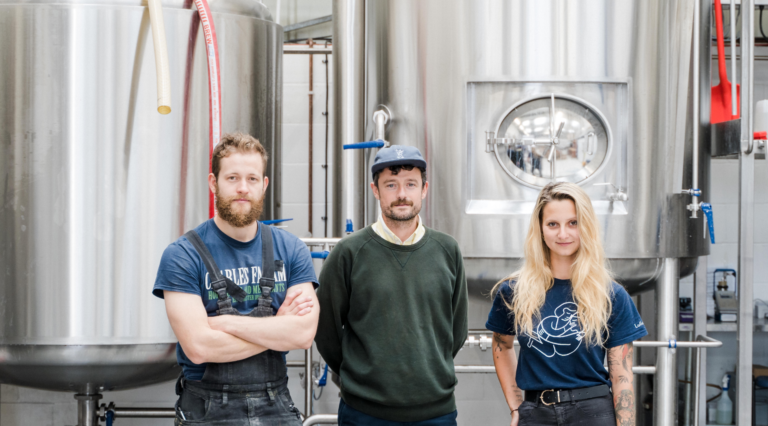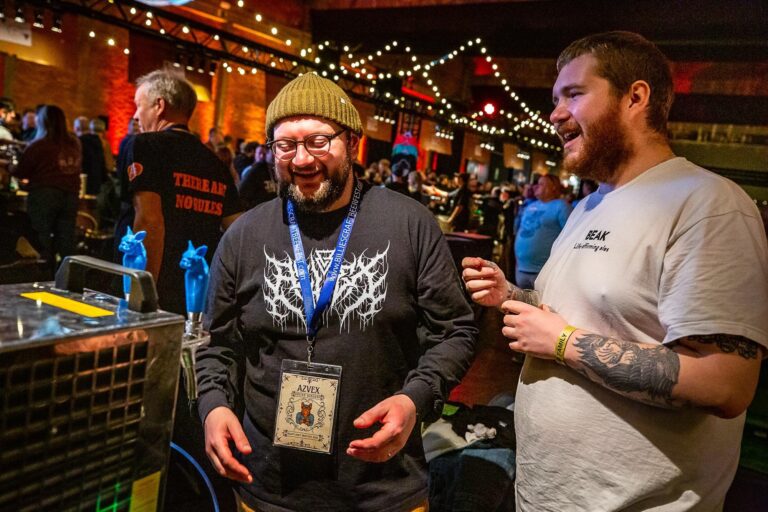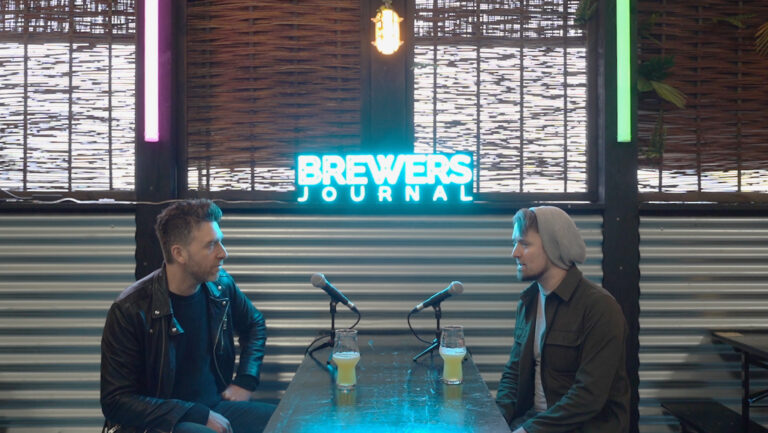The state of Colorado boasts some of the best breweries in the world. Its capital, Denver, is home to a sector that continues to flourish with close to 20 new operations in construction or planning. The landscape is changing, sure, but the demand for quality beer remains insatiable in the Mile High City, and its brewers are more than up to the task.
If you could only eat one meal for the rest of your life, what would it be? Or perhaps, listen to one album, drink one beer or have one movie to fall back on. If you could take it with you, I’m pretty sure the state of Colorado would many drinkers’ Desert Island Disc, no question.
In the world of modern beer few other states, perhaps no other, can boast that so many seminal breweries call this western US state home.
In 2018, Brewers Association figures note that 396 craft breweries operate out of Colorado, ranking it second only behind California. With that, there are 9.2 breweries per Capita and an impressive 1,522,834 barrels of beer produced per annum.
And to date in 2019, some 15 breweries have opened their doors in Colorado and close to 50 new businesses under construction. 20% of these will be proudly brewing out of the state’s capital Denver in the foreseeable future.
The Mile High City is steeped in the tradition of beer. Be it the opening of the Rocky Mountain Brewery back in 1859 or fast forward to the tens of thousands that descend upon the city’s Convention Center for the annual Great American Beer Festival. Great, as the name suggests, if you’re there. But more likely the reason for you muting/blocking your friends and family on social media if they’re in attendance living it up and you’re….not.
One brewery that has been a mainstay in Colorado for three decades is Odell Brewing. Founded in the outskirts of Fort Collins by Doug, Wynne, and Corkie Odell in 1989, the brewery has gone from strength-to-strength with its beers distributed in 19 US states and overseas, too. In its 30th year, the business was was ranked the 23rd largest U.S. craft brewing company by the aforementioned Brewers Association and ranked the 33rd largest overall U.S. brewing company.
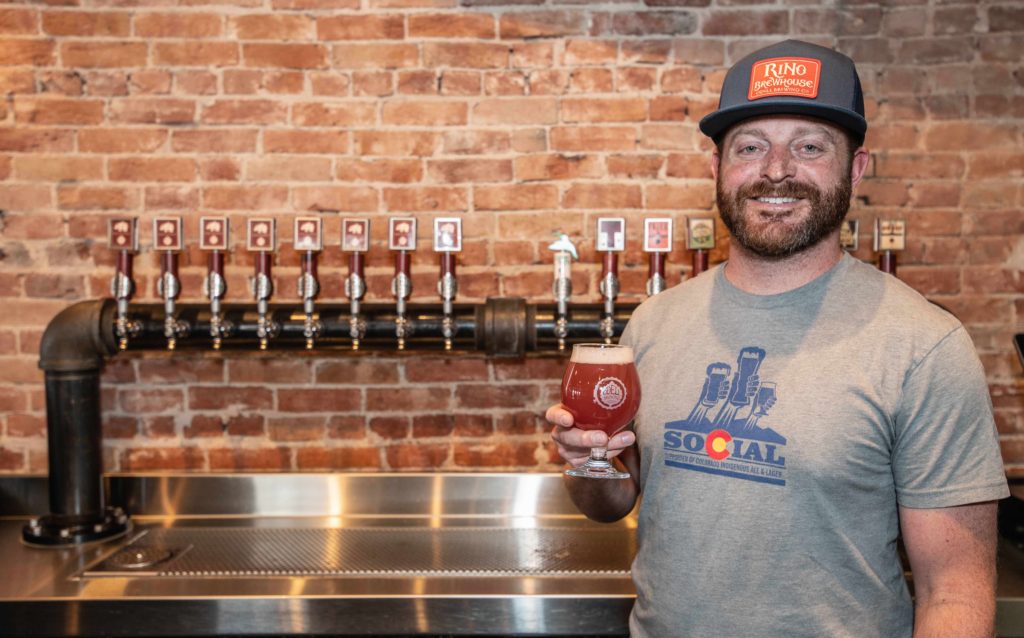
Last month, the brewery was also celebrating the first anniversary of its River North Art District (RiNO) brewery and taproom. Offering the brewery’s staple beers brewed in Fort Collins, it also offers 10 barrel small batch numbers brewed on the facility’s own kit.
Changing lanes
Sure Odell is something of a household name for many but for Matt Jaspers, who heads up the RiNO operation, that’s not something to dwell on.
“I feel like there is nothing given, or to be assumed, these days,” he tells us. “You sold beer last year? Cool, that’s great. But there are no guarantees you’ll repeat that this time out. You need to produce quality, consistent beers but also be fluid and show you’re able to react to market demands.”
Jaspers would know. Starting out with Odell in Fort Collins working 12 hours a week and determined to “see how it goes”, he soon became a full time member of the team and before long, he was manager of the brewery’s venerable taproom.
So when the opportunity arose to lead the team in RiNO, following nearly a decade in Fort Collins, it was one that made sense.
“So much of the beer culture in the US has become focused around the taproom experience. It is central to it,” he muses. “People, whether they’re drinks enthusiasts or not, want to enjoy fresh beer. They want to speak to the folk behind the beers and learn more about them.”
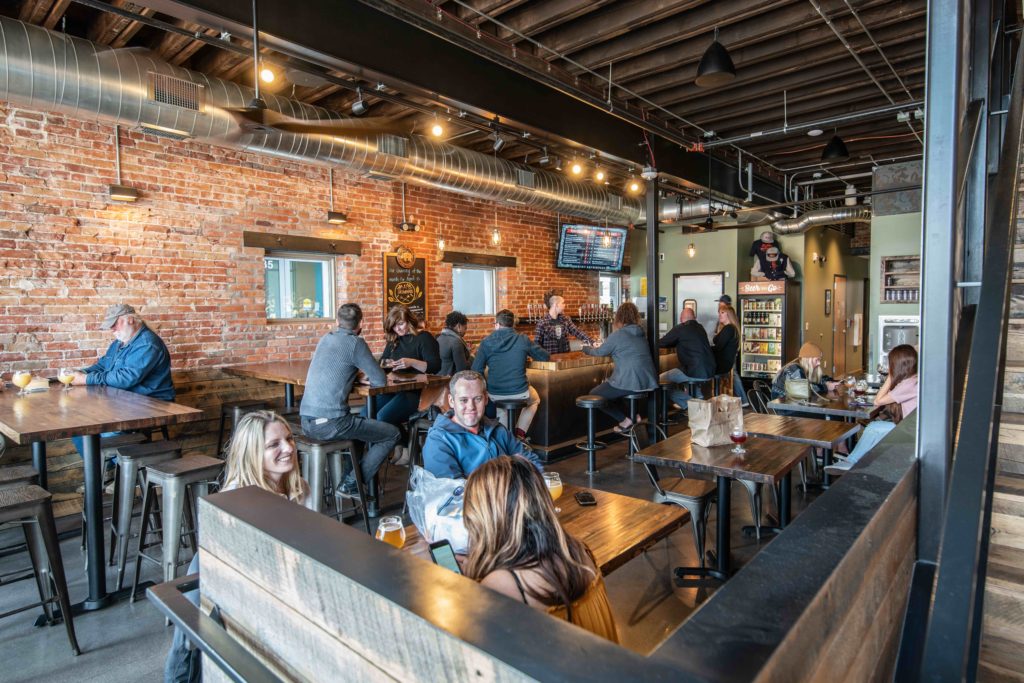
Although only 60 miles separate Odell’s RiNO and Fort Collins taprooms and, according to Jaspers, there are some marked differences in the cultural landscape.
He explains: “The advent of the taproom in Fort Collins was a very organic process, it wasn’t forced. We just wanted to offer a comfortable environment where people could enjoy quality beer served by a knowledgable team.
“It became something of a third space for people. If home was the first space and work was the second, then our taproom for many people was that third environment.
“But when it comes to beer, you’d offer someone a beer that was below 6% ABV and they’d often politely refuse. It wasn’t what they were there for. In Denver, however, people are in the market for beers closer to 4% ABV.”
For Jaspers, there are a number of factors behind this shift.
“People drive to this neighbourhood, or come to the taproom for a drink after work. Then come the weekend, there are so many choice available to the consumer and they might be visiting anything up to 10 breweries so moderation is key,” he explains.
The lower ABV beers continue to prove popular in RiNO, as do certain beer styles.
“Fruit beers and New England-style IPAs,” he says. “People appreciate choice but anything hazy will sell. That’s still the case.”
Speaking ahead of the launch of the Larimer Street facility, Odell COO Brendan McGivney said the brewery has always placed a great level of importance on its pilot system.
“It’s been our proving ground, where we push ourselves to create new and innovative beer,” he said. “The RiNo brewery will be solely focused on that exploration, and we’re excited to share that with Denver, one of the most educated and passionate craft beer communities in the world.”
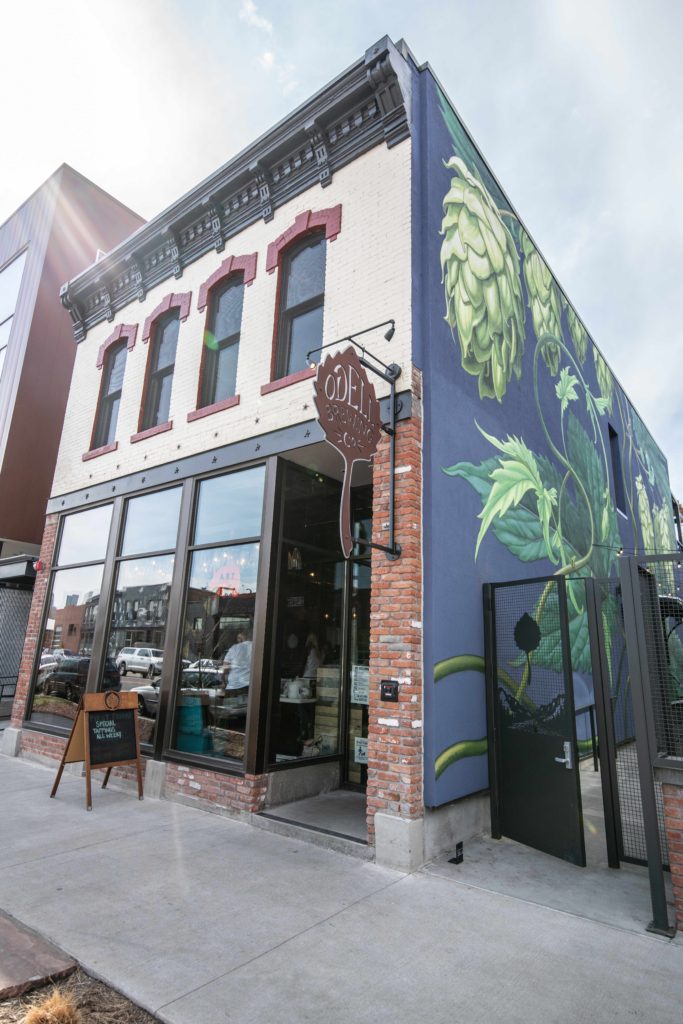
And within the first year, the ability to experiment on a small scale in RiNO has already bore fruit. A Guava Gose was an instant hit with drinkers resulting in the production of repeat batches and eventually, scaled up on the main kit at Odell’s main brewhouse in Fort Collins.
Christened Sippin’ Pretty, the beer is pitched as a Fruited Sour Ale, which is loaded with a blend of açai, guava, and elderberry, balanced with a delicate addition of Himalayan pink sea salt.
With its position in RiNO established and success on the beer front so early on, Jaspers is already looking ahead.
“I’m feeling pretty damn good,” he laughs. “We see lots of happy faces, and the beers are selling well. The first year was a learning curve and there were a lot of unknowns.
“We geared up for a big Christmas Eve in 2018, always one of the busiest days in Fort Collins, and it was completely dead. The demographic is different so it’s valuable to learn from those experiences.
“But now the mystery has gone, we have lots of plans and I’m confident about the future.”
Role in the community
Exit Odell’s Larimer Street brewery and within minutes, and in certain cases, seconds, you have Epic Brewing Company, Ratio Beerworks, Our Mutual Friend Brewing, and Great Divide Brewing, among others, all plying their trade.
Continue west and you’ll eventually reach Denver Beer Co’s Platte Street taproom, some 30 minutes from its larger Canworks production facility.
Denver Beer Co was founded in 2011 by Charlie Berger and Patrick Crawford. Two friends that graduated from the same university and ones that Berger says “reconnected” years later while pursuing different career paths.
Born and raised in Denver, Berger is proud of his heritage as a fifth generation Coloradoan. He has worked in the craft beer industry since 2004 with several craft breweries across the US. He attended the Siebel Institute of Technology and the Doemans Brewing Academy in Munich, where he was trained by some of the world’s most acclaimed brewing professionals and earned his International Diploma in Brewing Technology.
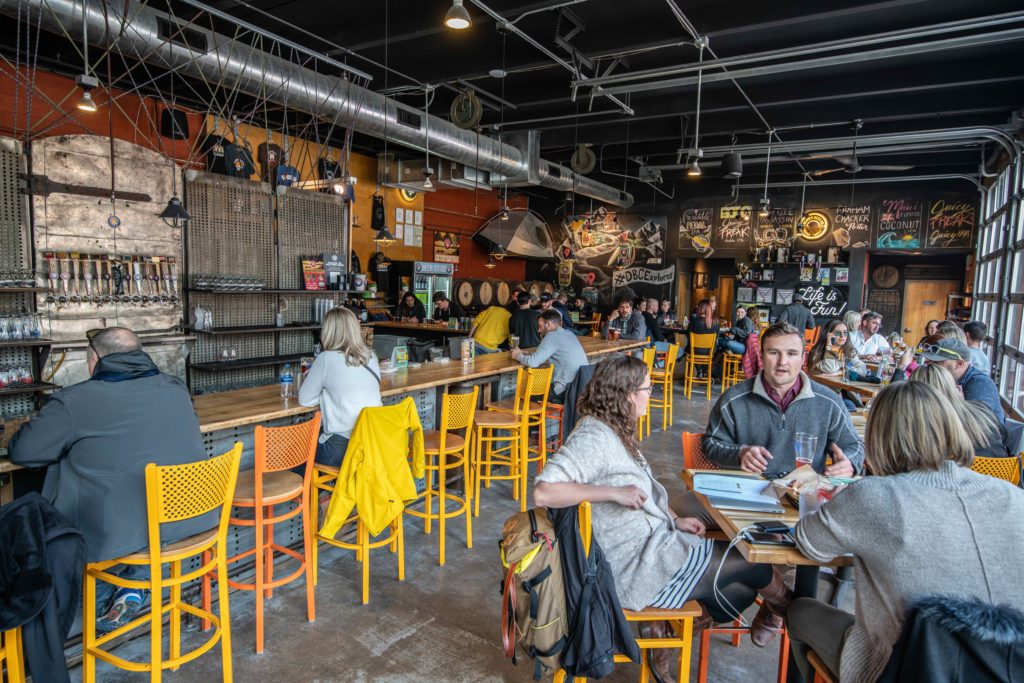
Crawford is an award winning home-brewer with a great passion for beer and the brewing process. In his past life, Patrick was a physicist and engineer extraordinaire for Lockheed Martin.
When they started out in an old Auto body shop back in 2011, the duo’s ethos was to embrace the idea of community. To experience beer with friends old and new, to appreciate the process behind beer production and to enjoy fresh beer “whether it’s one or seven,” Berger says.
“Our brewery was founded on passion for high quality, flavorfully crafted beer and the belief that the best pints are those shared with good company,” he explains. “We love the Denver lifestyle and wanted to create a brewery that matches our city’s personality. Denverites work hard, and play even harder. And after a long slog at the office or a gnarly mountain bike ride there is nothing better than a friendly place to sit and relax with friends and a pint.”
In such a buoyant, burgeoning landscape, much has changed at Denver Beer Co, and the landscape around it, since starting out eight years ago.
“I suppose you could say we on the early side of the boom,” says Berger. “It went up a notch in 2012/2013 and since we opened, some 250 breweries have opened in the 50 miles around us.”
Echoing what Odell’s Jaspers said earlier, Berger knows that years in operation and the ability to sell beer the year previous, stands for little in such a competitive marketplace.
“It’s important to reward customers with a unique experience and great beer,” he says. “There are a lot of breweries out there. We ourselves are promiscuous beer drinkers, so why shouldn’t your customers be, too? If they are loyal to you, you have to ensure are living up, and exceeding their expectations each and every time.”
What started as an outfit producing 1,200 barrels in its first year has grown to 20,000 in 2019, employing 75 staff across its three sites.
“Growth for us has meant continuing to take calculated risks,” explains Berger. “We had a popular taproom and brewery in Platte Street, but wanted more of a challenge and that meant kegging and canning our beers for distribution. It meant moving out of our comfort zone and with it, increasing the visibility of our beers.”
The company’s Canworks brewery facility was the answer to that particular question. Beers are produced in 30bbl batches on its DME brewhouse before being transferred into 120bbl FVs. This is all overseen by head brewer Jason Buehler, who joined Denver Beer Co from his role as head brewer at Oskar Blues Brewery.
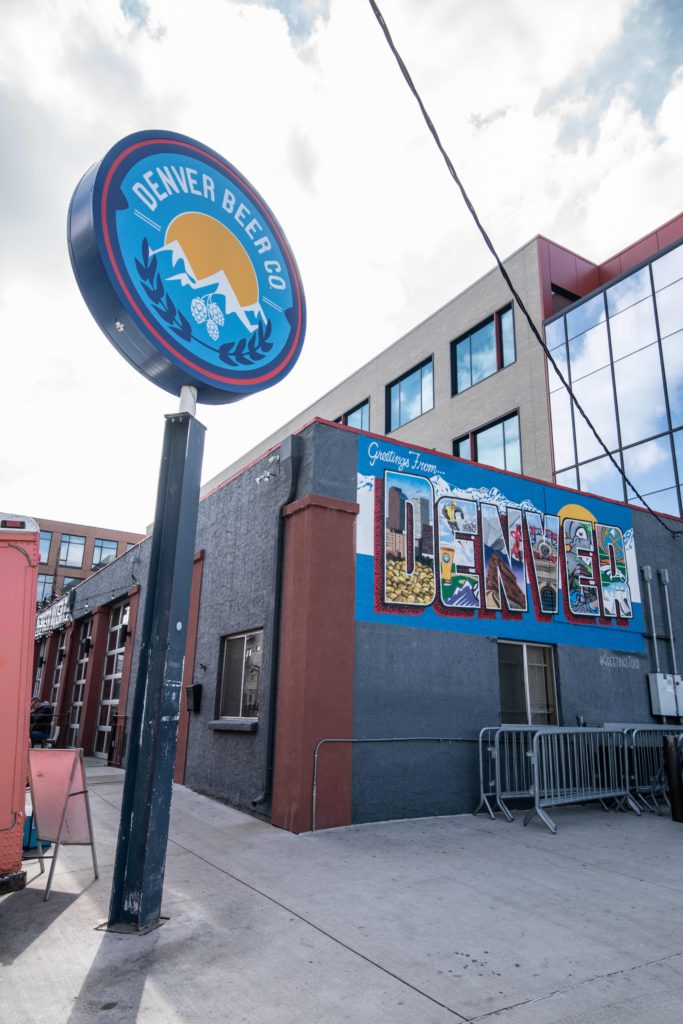
“For me, Jason is the best brewer in Denver,” says Berger. “We’re fortunate that we have such a great team here. And if you don’t have a great brewing team producing fantastic beer, we wouldn’t be growing, simple as that.”
The brewery’s taproom locations fulfil a number of purposes, one key role being the valuable market research insights it offers on what beers are selling well and which ones less so.
“It’s a very democratic process. We don’t vote on beers, our customers do. And that means it’s a diverse range indeed,” he adds. “When we say we’re from Denver, it gives us a great freedom to make every style of beer. Be that a hoppy IPA, German-style Lager or a Wild Sour. What defines our beer is our Denverness. We don’t have one track or one niche, and it’s all the better for it.”
Importance of Diversification
The brewery hasn’t stopped at beer, either.
Last month Denver Beer Co rolled out its O&A Colorado Craft Hard Seltzer. Developed by head brewer Buehler, the drinks launched with Lime and Black Cherry flavours.
“When crafting O&A it was very important to us to make sure we created great flavours that are both refreshing and satisfying,” says Buehler. “We went through many rounds of development and testing and landed on recipes that we believe deliver seltzers that are fun and easy to enjoy.”
Both the Lime and the Black Cherry O&A craft hard seltzers are made with carbonated water, alcohol from cane sugar, and natural flavours. Each can of O&A is 5% ABV, gluten free, and contains 0 grams of carbohydrates, 0 grams of sugar, and 100 calories.
“O&A is was made for when you are ‘out and about’ with friends,” adds Berger. “We hope this craft hard seltzer finds its way into skiers backpacks for après, in coolers for afternoons at the park or a friend’s backyard BBQ, in the back of a Subaru when heading to the mountains to bike or hike with friends, or for tailgating at Red Rocks before a show. It’s light, refreshing, health-conscious, and a lot of fun.”
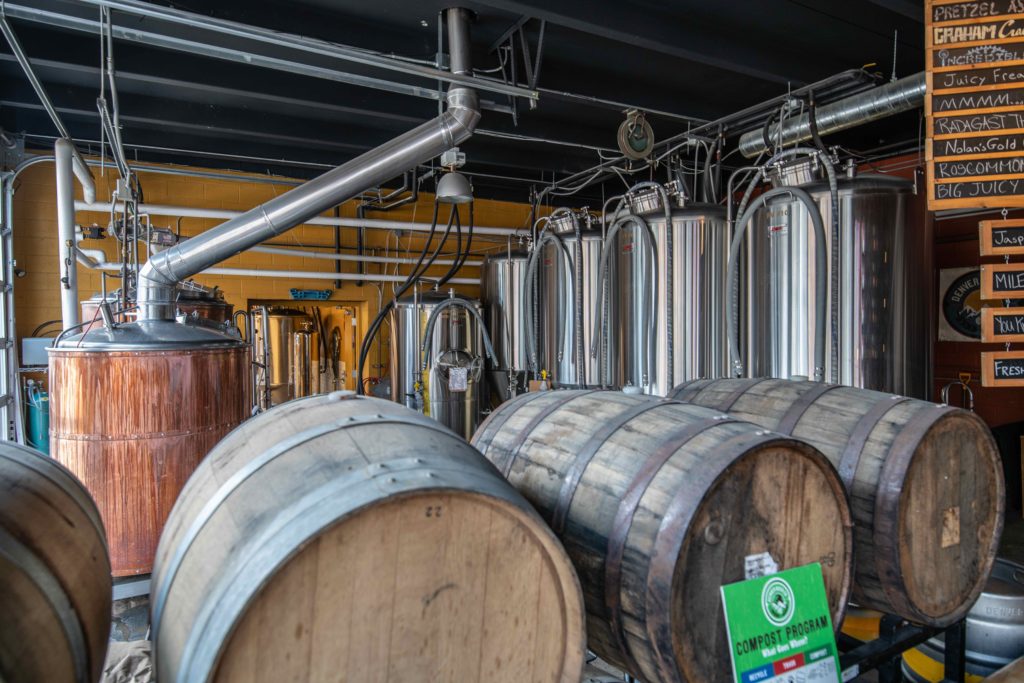
Berger is excited about the brewery’s diversification, and if the popularity of the seltzers with its brewers are anything to go by, it’ll be a hit. But regardless of what beverage they’re producing, one thing stays constant.
“I spend an inordinate amount of time in my day working with people to believe in the same thing and push in the same direction,” he says, “If we work towards the same goal, then we’ll succeed. It’s about sharing the same culture, supporting each other and, of course, having fun.”
Having fun is something Ayana Coker, Chantel Columna, and Tamir Danon have had since opening the doors to Novel Strand Brewing Co, the brewery they founded in July 2018. It’s finding the time to do so that may be the problem.
Doing things your way
“Brewing, always focused on brewing, says head brewer Danon reflecting on that first year. “I’m still making the beer I want to drink but the main thing is the beer is better now than it was then. And it was good then.”
Danon co-founded Baker neighbourhood brewery alongside general manager Columna and comptroller Coker. Three individuals that met as undergraduates at Rensselaer Polytechnic Institute in Troy, New York.
Utilising a 5bbl system from Nebraska’s Alpha Brewing Operations, Danon brews into nine tanks of varying capacities, dedicating the larger FVs to the styles he knows will prove popular with drinkers at the W 1st Avenue taproom.
“If I’m making a Pilsner, that will get the relevant tank space. But when it comes to the more experimental stuff, I’ll do a much smaller batch,” he says. “If we like it, it’ll disappear immediately. If we don’t then it’ll disappear immediately.”
Having the flexibility to brew diverse styles in differing batch sizes fits in with Danon’s brewing ethos and the one he, along with Columna and Coker wanted from their brewing operation.
“Each time you come here, there’s always going to be something new one. We think our ourselves as a boutique brewery and strive to offer the drinker something different,” he says. “That’s what drives the process. I’m not interested in Instagram, or things like that, to see what’s popular. We do what we want to do. For better or worse.”
Thankfully, as Danon says, a lot of what he enjoys brewing and drinking are the styles that resonate with consumers. Hoppy beers that are full of flavour and complexity, defined by its “house beer” Green Showers, an IPA featuring Amarillo, Huell Melon, Idaho #7, and Mosaic.
Beers such as Green Showers epitomise what Novel Strand Brewing Co is about, according to Danon. Beers that are accessible but also full of flavour.
“Beer is an adhesive for social interaction. That’s how it should be, and that’s how it has always been,” he explains. “There are breweries out there doing exceptional things with fruit, or in the world of Pastry Stouts and beers that taste like cocktails. The innovation is incredible.
“But for me, beer doesn’t need to be that crazy. I’m more interested in how can I squeeze so much flavour into this Pilsner or IPA that makes it a fascinating beer to drink, but also one you can drink a lot of. So, I want the 6.2% Green Showers to be as smooth as our Pilsner. I’m less concerned with the idea of having one beer and you’re out. I prefer it more as something to stick with.”
Danon looks to Europe where beer is intrinsically linked with the culture of many countries, citing its unifying qualities whether you’re speaking politics, sport, travel or otherwise.
He explains: “In the USA, we seem to have lost a lot of that over time. The advent of craft beer has been great for a lot of people really into the scene. Bearded white dudes wearing flanneled shirts, you know what I mean?
“But it should be more than that. There shouldn’t be a type that can enjoy, or try, modern beer. There shouldn’t be a need for approval or attention. If you like beer, great. Then we hope you’ll enjoy drinking with us. If you don’t, then give it a go anyway.”
Calling Denver its brewing home, Danon believes that there’s a more rapid proliferation in the uptake of beer styles owing to fact that it’s a city, and one that some 680,000 people call home.
“With such a larger number of breweries, ideas certainly progress faster than if you were in the countryside,” he says. “The market evolves quickly and it tells you where to go. So if someone adds milk sugar to their IPA and starts producing a Milkshake IPA, and the consumer likes it, then it’s unsurprising to see other brewers wanting to put their own stamp on it, too.”
Danon adds: “I don’t know if you can call it arrogant, but we love the beer that we make. So when it hits the taps, we know it’s going to be good.
“So when someone tries a beer, looks up and tells us it’s great, we like to think we knew that already. Surely that’s the point? We go through a painstaking process to make sure each beer we make is good enough to sell. We wouldn’t bother otherwise.
“I’ve dumped beers that demonstrated off flavours. But I’ve done the same for beers that didn’t fit the flavour profile I wanted, too. I’m a chef, but I brew. So if I think a beer isn’t in line with what I had in mind, then it’s not of the quality I’d expect the consumer to pay for, either.”
It’s an admirable approach, especially in an age where a brewer’s drain pour of faulty beers can still be celebrated on social media. And it’s that commitment to quality that puts Novel Strand Brewing Co in good stead as it celebrates its first birthday.
“Well, we’re still open, we got that down so I consider that a success,” smiles Danon. “I obviously look at our business plan and our financials, and as long as I see growth and progression, then I’m happy.”
He concludes: “For the team here, the goal is to continue making great beer, but to have it disappear faster each time. The joke we have is that we make beers that we want to drink, and trick people into wanting to drink them, too. And it’s working!”

